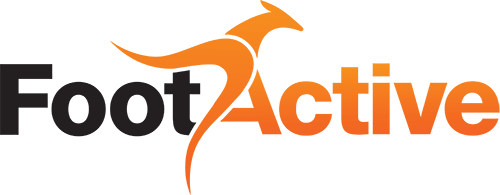
Over 56,640 people tackled the Capital’s streets during the 2025 London Marathon.
Running in the iconic annual event is allocated via a ballot and for many of the thousands that take part in the marathon each year, it is their first time.
It’s a life bucket list event, one that ranks as one of the greatest achievements for first-time runners.
And so, with the 2026 instalment booked in for Sunday 26 April, we have created a 6 month London Marathon training plan for beginners. The training schedule is built to help anyone starting out on their road to preparing for one of the UK’s toughest endurance running events.
How long does it take for a beginner to train for a marathon?
For this type of marathon preparation, the answer is the longer the better.
Our 6 month marathon training guide is the optimum time for beginners to prepare for any marathon, including the iconic London Marathon. Whether you are planning on running or walking a marathon, it is still vital to prepare your body for taking on such a big challenge.
It’s important to build your body up slowly to ensure you don’t just cross the finish line but do so feeling strong and free of any injuries.
As a beginner, can I train for a marathon in less than 6 months?
You can, but it is not advised. Trying to build up your body quickly in order to tackle a challenge like a marathon can lead to injuries, which in turn slow your progress and create additional strain on your body.
Can You Run a Marathon Without Training?
Again, you can. But it would be at the risk of several pitfalls.
Without proper training for a marathon, you’re risking sustaining an injury - one of the most common being plantar fasciitis.
A lack of training could also lead to you exhausting your body, given that it is not prepared for something like the marathon, as well as dehydration or overhydration.
Try our marathon plan for beginners, to prepare your body for long distance running.


Preparing For Marathon Running
How long should you train for?
However long it takes. As the saying goes, this is a marathon, not a sprint.
Rather than focusing on completion time, put your efforts into completing each session as mapped out, doing so to the best of your ability. As you get stronger and fitter, you will naturally see your completion times improving.
Shall you train outside or on a treadmill?
The beauty of this plan is that it can be actioned either outside or on a treadmill.
While the London Marathon takes place outdoors, of course, many runners complete all of their training on a treadmill and go on to enjoy a comfortable race.
The treadmill is appealing for obvious reasons, including being able to train no matter the weather, it’s safer, and being a more cushioned running surface.
Meanwhile, running outdoors is proven to use more muscle groups and is better for physically getting you accustomed to what to expect when you tackle your chosen marathon.
What other activities should you do whilst training?
In addition to running, we would advise taking part in several different activities to ensure you’re working all of your core muscle groups. Other activities that are useful for marathon preparation include swimming, yoga and pilates, strength training, cycling, and cross-training.


What you can expect from our beginner’s London Marathon training plan
Admittedly, running is a key part of the programme but it’s not all you should be focusing on as you build up your body to tackle this challenge.
Within our 6 month marathon training plan, we have looked at the following:
- The different types of running to do, distances to cover, and how they should be split
- Other marathon training activities to take part in to build up different muscle groups
- When you should be relaxing
And you won’t be alone in your preparations. Our Director, Will Munro, is also working on this exact plan as he prepares for his next marathon, too.


Who is Our Training Plan Suitable for?
Can You Use this Plan if You’re a More Experienced Runner?
Of course! All you need to do is adapt this plan to suit where you are in your journey.
If you’re an experienced runner, the first couple of months of this plan is most likely not going to be for you. In this case, start at a point that challenges your level of fitness and continue to build yourself up from that point.
Can The Plan be Used to Train for a Half Marathon?
Absolutely. The process remains the same, you’re just halving your output.
Just like with a marathon, you still need to build up your body and muscles to be able to cope with the strain that comes with completing even a half marathon.
Start small and build your body up by running longer and further in incremental steps and take part in other activities to make your other muscle groups stronger.
How Long Does it Take to Run the London Marathon?
London Marathon average time is dependent on a number of factors, including gender and age.
What are the Average Finishing Times?
In 2022, the average time for women of all ages was 4hr 57min 26sec; compared to an average of 4hr 21min 09sec for men.
What are the best runners times for London Marathon?
When looking at the times for non-elite runners, there are still some very impressive finish times each year.
The top men's time for 2025 was set by John Gilbert at 2hr 16min 26sec, and the winner for the women’s mass race was Lucy Jones at 2hr 30min 23sec.
What Pace Should You Aim for as a Beginner?
The average speed for beginners is between 12 and 15 minutes per mile. At this pace, you can expect to finish a marathon in anything between 5 and 6.5 hours.
Our five top tips for preparing for the London Marathon
Below is a collection of our top tips to get you started on your marathon planning journey:
Build your mileage slowly - we’ve built this into our training plan but it’s important to emphasise that this journey is a marathon, not a sprint - excuse the pun! If you’ve never run a marathon before, you need to build your body up to it slowly in order to avoid injuries
Stretch after sessions - remember those stretches you do after PE at school? Well, it turns out that they are necessary, particularly for your leg muscles and knee joints which take a lot of the strain
Wear comfortable clothing and footwear - no matter whether you’re running a 5K or a 26.2 miles marathon, the last thing you want to be thinking about is blisters and chafing. Wear clothes that fit comfortably and proper running shoes. Investing in quality arch support insoles will provide additional support for your feet, too
Don’t ignore injuries - no matter how small or big you feel something is, listen to your body. It will thank you for it in the long run
Keep hydrated - one of the most obvious yet important tips. Water is required to regulate your body temperature and improve post-marathon recovery.


Insoles and products perfect for the London Marathon
- ECO Active - specifically designed to support the arches of your feet during high impact activities. They are perfect for all sports and activity use, offering plenty of arch support, shock absorption, and cushioning to the heel and forefoot.
- FootActive Sports - a high-impact advanced orthotic arch support insole for all types of different sports, this insole offers maximum comfort and shock absorption. The perfect accessory for injury prevention.
- FootActive Comfort - our NHS-approved premium arch support insoles are created to help reduce plantar fasciitis, achilles tendonitis as well as heel pain, knee pain, and lower back pain. A medium-density insole fit for everyday use, it’s also perfect for anyone with flat feet.
- FootActive UltraLite - the necessary arch support insole for any outdoor activity. A runner’s dream.
- FootActive Casual - a 3/4 length orthotic, the Casual is an easy and cost-effective solution to heel pain, knee, back pain or tired, aching feet and legs. The 3/4 length allows it to hit shoes with a narrower toe.
- First Honey Plasters for any blisters afterwards


Further information
Runs
-
- Endurance = slow and steady, trying to maintain pace and without stop
- Speed run = pushing yourself but not quite to the maximum - hit your 7 out of 10
- Sprint run = let’s give it everything we have got - we’d love a 10 out of 10 effort but we will take a 9
Strength and conditioning
Include three sets of the following, with 60 seconds rest between each set:
-
- Up to 15 push-ups
- Up to 15 squats
- Up to 15 lunges
- Hold your plank for 30 seconds
Include five sets of the following:
- Up to 10 bodyweight pull-ups
- Up to 10 deadlifts
- Up to 10 jump lunges
- 90 seconds intense sprint on indoor bike
How Can FootActive help?
We hope you find our London Marathon training plan for beginners useful and that all of your questions are answered in the blog. However, if you need any further advice, please don’t hesitate to contact us. Good luck!
